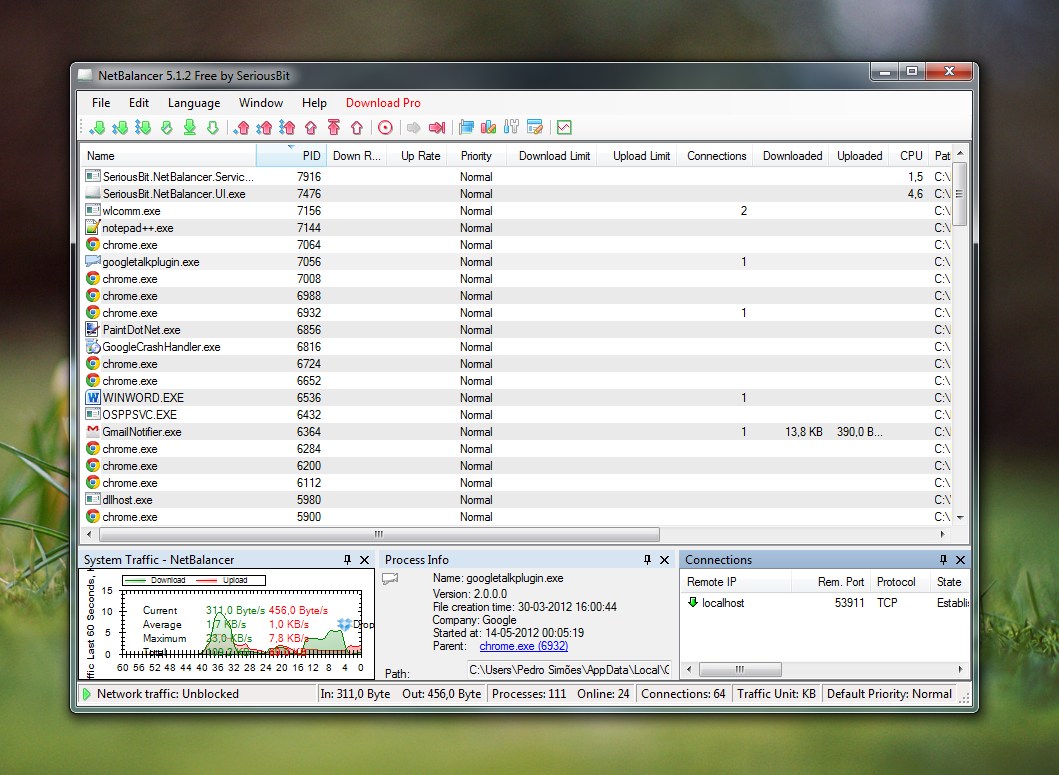

It shows you the network traffic on your computer and helps you to set limits, priorities and rules for that traffic. Then every time you run CCleaner, it will delete the Windows event logs. NetBalancer is a Windows application for local network traffic control and monitoring. The popular cleaning app CCleaner has an option to do just this: in the CCleaner window, in the left (Windows) column, under Advanced, tick “Event Logs”. You will still be building logs for one week or so, just in case you might need them, but then clear them out. If this solution is too drastic for you, then consider deleting all Windows events logs on a regular basis. However, in normal life you really won’t miss the logging at all. Also, after a crash, you won’t be able to use your event logs to look for the possible cause of the crash. Like, when you want to use some analyzer program that needs Windows event logs to gather its data (example: some Nirsoft utilities will remain blank if your event logs are empty). No major problems at all! However, depending from your situation, you might encounter a few minor problems. Windows will run just as fine with the Event Log disabled. Should you want to disable the logging service permanently, in the same Services window right-click on the Event Log service, open Properties, and in the “Startup type” dropdown list select “Disabled”. The logging will stop now, but it will recommence automatically again the next time you start Windows.

Once you’ve selected this Event Log service, click “Stop the service” in the top-left corner of the window. Normally, in the Status column, this will be listed as “Running”. A crude but simple and effective way to stop nearly all Windows logging in one stroke is this: open the Windows Services screen (run services.msc) and find the entry “Windows Event Log”.


 0 kommentar(er)
0 kommentar(er)
